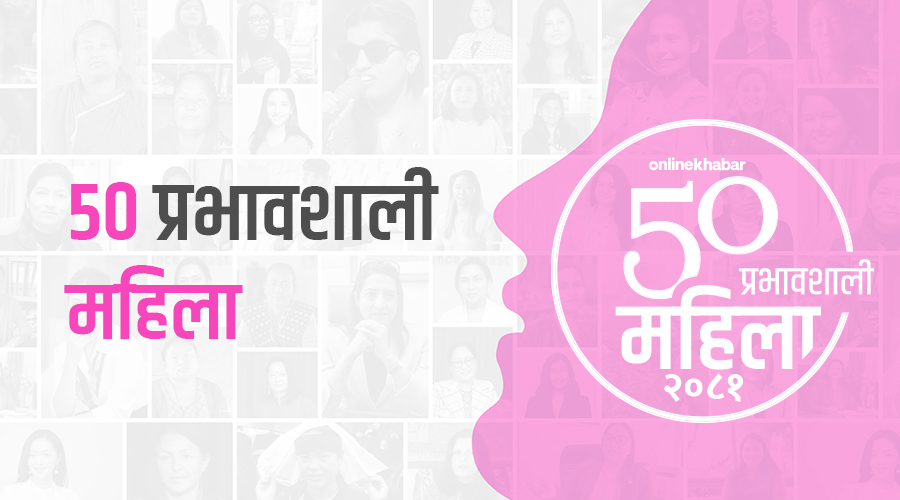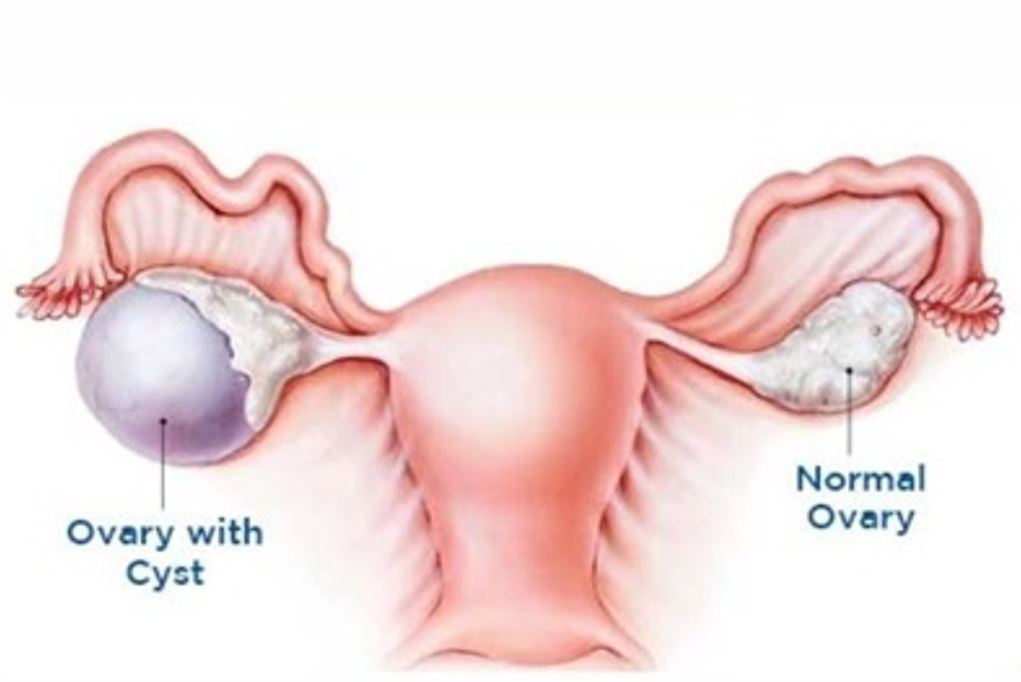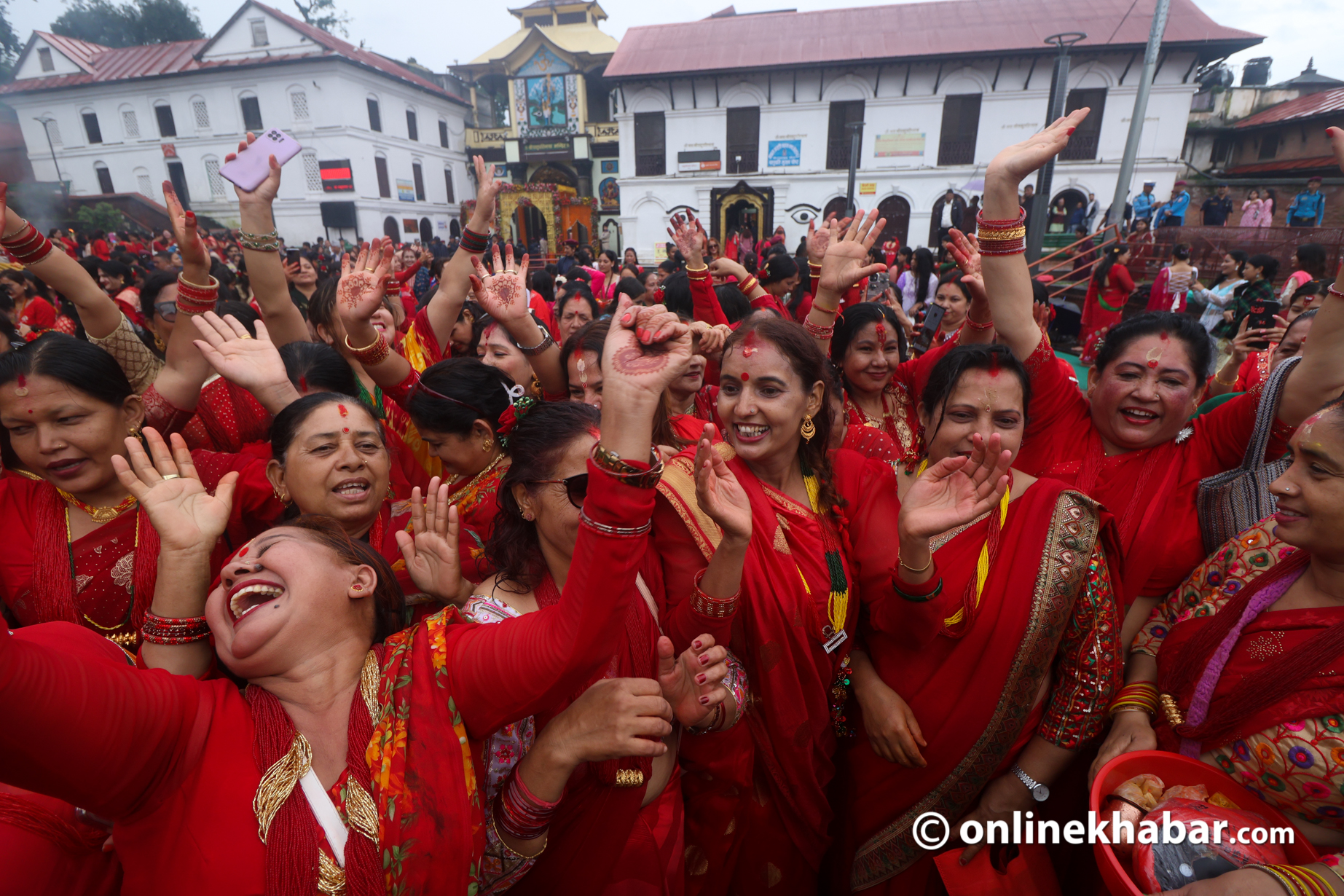
Early this morning, one of my neighbours asked me, “Have you bathed for today’s Panchami Puja?” I replied, “Oh no, I haven’t started the Panchami Puja yet. Nevertheless, I light a diyo remembering Rishis and their contribution to the humankind.”
Then, she asked, in a different voice, “Don’t you bleed every month?” I replied, “I do. I have a child too.”
Nepali women today celebrated the annual Rishi Panchami festival, as a part of Teej. On the Rishi Panchami day, the women traditionally undergo a detailed bathing procedure and a puja of the Saptarshis (seven saints). It is believed that the ritual of bath and the puja would help them get rid of the sins they face for violating restrictions during their periods.
After this short conversation, I entered my room from my terrace remembering that discontented and sardonic face and expression of my neighbour. Maybe my smiling face and those answers made her furious or what, I just could not conclude. But, I can say there was something else in her mind. She may have projected me as an atheist.
As soon as I entered the room, I googled on my phone: Why is Rishi Panchami Puja done in Nepal? I googled it just to make sure if my thoughts about this puja were correct. Also, I wanted to know the reason for the neighbour’s expression.
Web research confirmed my assumption. The logic behind the Rishi Panchami Puja was seeking forgiveness for any errors committed during their periods. I had heard the same from the women of my earlier generations. This was the reason for me discarding this ritual.

I clearly remember that after my first bleeding, my father had asked to perform this Panchami Puja. No sooner had my father asked than I put my queries about the ritual. I used to be a little stubborn and curious in those days. My father answered that if women had done any mistakes, for example, if they had touched the things that should not have touched, they would be forgiven for their deeds after performing the puja.
By explaining the reason, he had wanted me to participate in the function, but that had an exactly opposite effect. I said to him, “A period is pure, at least for me. Nature should accept me and my regular blood.” But, my parents did not understand me and my words, but they also did not force me to join the puja with my elder sisters.
In contrast to this society, I celebrate my blood, my periods. I believe this is the only ‘bloodshed’ that does not harm anybody. The period blood runs nature. This is holy. Women are not unclean during menstruation, rather it is a natural phenomenon which is the most beautiful and delicate stage of their life. This is the only way to give life. And, lives are necessary for nature.
I accept that bathing essentials for Panchami Puja are really good and healthy if you see the ritual closely. The use of datiwan (Achyranthes bidentata) herb as a toothbrush is really good for anyone’s teeth. They also apply a special kind of mud all over the body, which can also be considered healthy. But, the real problem is about why it is done. They have to brush, wash the body and dip in the river 365 times. Why do we need to brush our teeth 365 times once in a year? The answer is that we want to be free of without any sin related to menstruation that we might have committed.
In Bhagavadgita, Shree Krishna declares that he lives within us. He is not far from the human soul. He lives in all human entities. He is the beginning, the middle and the end of all beings. He lives within me, and he does not leave me even when I bleed. He is with me when there are menstrual cramps and heavy flows. He does not leave me when I bleed, he is within me and within you. Then, how can I be impure when I am just a part of the god? Why should I ask to forgive me for my blood with my god, who is within me? I am god’s beautiful creation. I am a pure soul. I am not impure.
Pokharel is a teacher.























